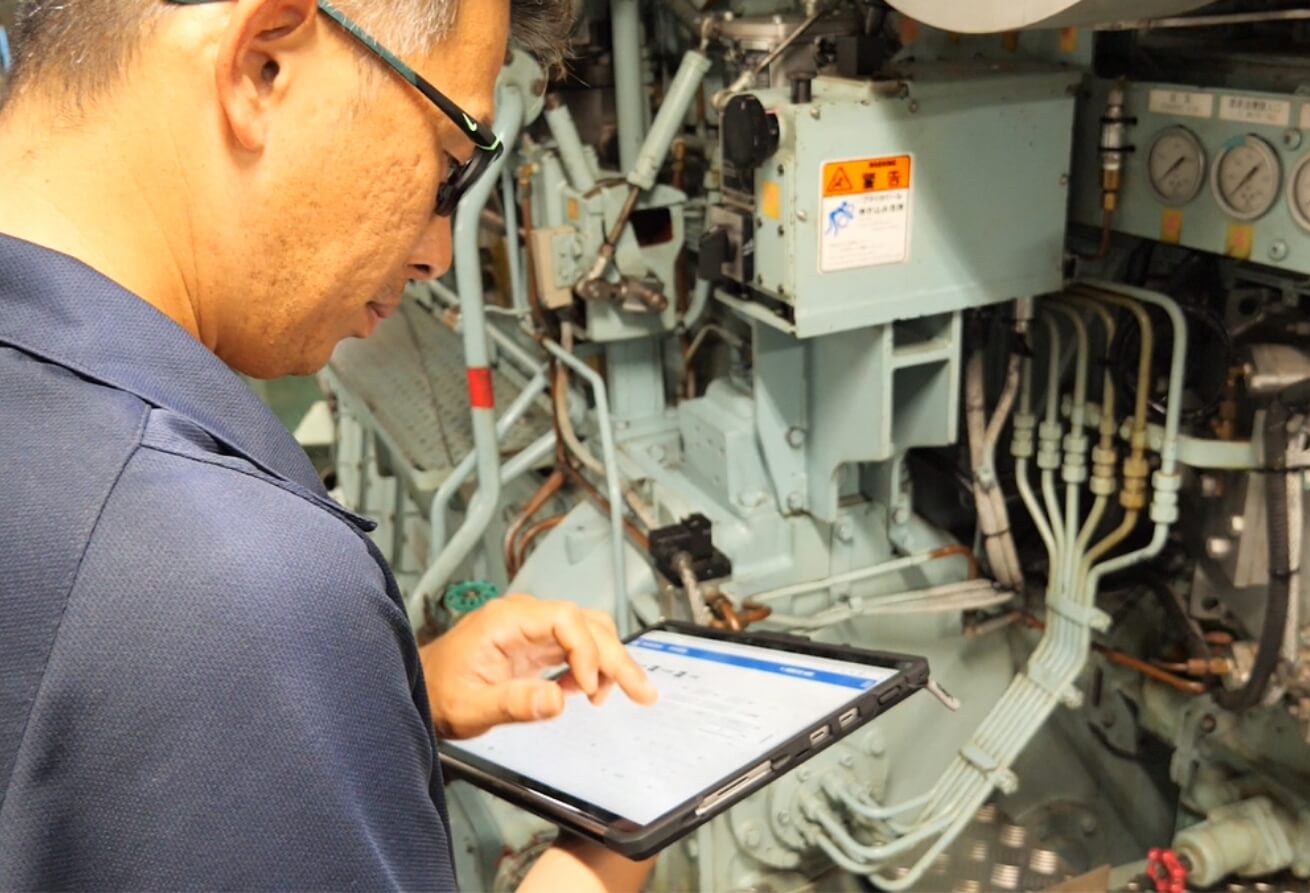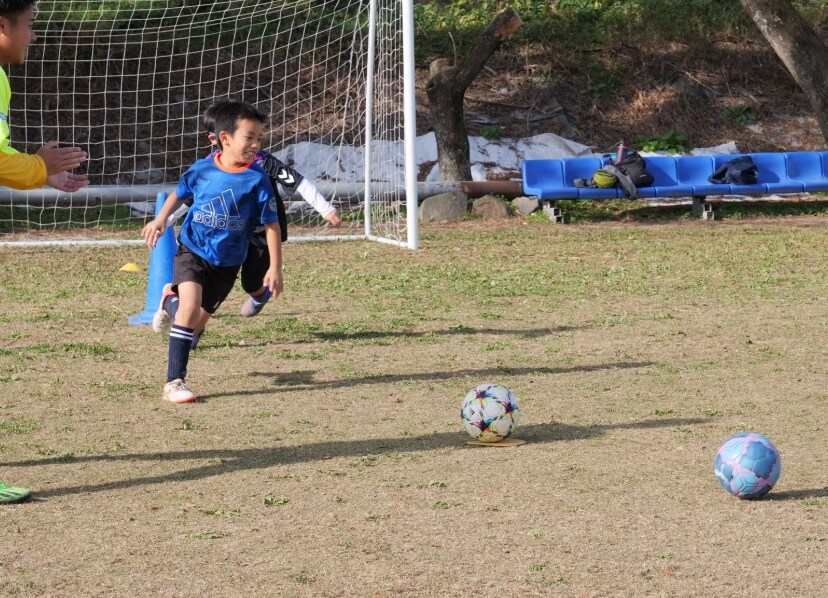Greetings
Greetings

President and CEO
Toshihito Kagoo
Message from the Representative
Becoming a “ship doctor”!
When I was a child, I would come to the repair yard with my grandfather, the founder of the company.
At that time there were about 200 boats for deep-sea tuna longline fishing and about 50 bonito pole-and-line fishing boats around Nahari Town in Kochi Prefecture. My predecessors were kept busy repairing these boats year round.
But times have changed. The fishing industry has declined and the types of ships we work on have changed. But our awareness of the work we do has remained the same as it was 30 years ago.
Maybe you’ve never thought about it, but commercial ships (fishing boats, transport ships, cargo ships, etc.) operate 24 hours a day, except during the annual maintenance period (docking period).
Even when docked, they are generating electricity through their onboard generators. Like our bodies, they will never stop working until they have completed their life-long role.
Previously our attitude was, “We’ll just repair what’s asked for” or “We don’t have time to work on repairs outside the owner’s requests, so we’ll ask the shipowners to postpone them until next time.”
What do you think would come out of such an attitude?
It would create a corporate culture of “burying your head in the sand.” Even if you notice something that needs to be repaired, you wouldn’t touch it because you were not asked to. We wouldn’t even tell the shipowner.
If you were a ship, how would you feel?
You would never trust your body to such a place.
Seeing us like that, the seniors who built Kagoo must have been deeply disappointed. But then, we realized it and changed.
We now see “ships that come in for repairs” as “patients who come in for check-ups and to be cured of their illnesses.”
We are doing our best to be the ship doctor that our customers need. We want to hear them say, “We can’t do without you,” and “We want you to repair our ships.”
At that time there were about 200 boats for deep-sea tuna longline fishing and about 50 bonito pole-and-line fishing boats around Nahari Town in Kochi Prefecture. My predecessors were kept busy repairing these boats year round.
But times have changed. The fishing industry has declined and the types of ships we work on have changed. But our awareness of the work we do has remained the same as it was 30 years ago.
Maybe you’ve never thought about it, but commercial ships (fishing boats, transport ships, cargo ships, etc.) operate 24 hours a day, except during the annual maintenance period (docking period).
Even when docked, they are generating electricity through their onboard generators. Like our bodies, they will never stop working until they have completed their life-long role.
Previously our attitude was, “We’ll just repair what’s asked for” or “We don’t have time to work on repairs outside the owner’s requests, so we’ll ask the shipowners to postpone them until next time.”
What do you think would come out of such an attitude?
It would create a corporate culture of “burying your head in the sand.” Even if you notice something that needs to be repaired, you wouldn’t touch it because you were not asked to. We wouldn’t even tell the shipowner.
If you were a ship, how would you feel?
You would never trust your body to such a place.
Seeing us like that, the seniors who built Kagoo must have been deeply disappointed. But then, we realized it and changed.
We now see “ships that come in for repairs” as “patients who come in for check-ups and to be cured of their illnesses.”
We are doing our best to be the ship doctor that our customers need. We want to hear them say, “We can’t do without you,” and “We want you to repair our ships.”

To our future colleagues
At Kagoo Dock, we are driving initiatives to become the ship doctor. One thing is “pursuit of customer satisfaction.”
If “what the patient wants” and “what we can provide” do not intersect, then no value is created.
The ability to bring these two factors together requires technical skill, understanding; however, I believe that a mindset and individual awareness are essential above all.
We do our utmost to meet the needs of our patients. I believe it is this attitude that will create value.
The other thing is “ship innovation.”
Our mission is to ensure the safe navigation of the next generation and to provide a comfortable working environment by making the most of our decades of ship repair knowledge and making our existing shipping products more efficient in every way.
We have developed a “remote monitoring system for ship engines.” This system allows for real-time monitoring of all engine room equipment (temperature, pressure, rotation sensors, etc.) from the shore.
Combining this data with our new ship charting system (under development) will make it possible to track each ship’s repair history and current engine health.
We will continue to rise to the challenge of “From Nahari to the World” to provide safe voyages for the next generation.
If “what the patient wants” and “what we can provide” do not intersect, then no value is created.
The ability to bring these two factors together requires technical skill, understanding; however, I believe that a mindset and individual awareness are essential above all.
We do our utmost to meet the needs of our patients. I believe it is this attitude that will create value.
The other thing is “ship innovation.”
Our mission is to ensure the safe navigation of the next generation and to provide a comfortable working environment by making the most of our decades of ship repair knowledge and making our existing shipping products more efficient in every way.
We have developed a “remote monitoring system for ship engines.” This system allows for real-time monitoring of all engine room equipment (temperature, pressure, rotation sensors, etc.) from the shore.
Combining this data with our new ship charting system (under development) will make it possible to track each ship’s repair history and current engine health.
We will continue to rise to the challenge of “From Nahari to the World” to provide safe voyages for the next generation.



Kagoo’s contribution to the local community
It has been about 50 years since we started our business in Nahari.
Nahari, designated as a depopulated area, has seen its population decline year after year. There are many reasons for this decline, one of which is the lack of places for children to learn. Many parents send their children to the city to study.
Parents say, “There are no options here, are there?”
If the local community can’t provide a place for children to learn, the town will continue to decline.
So to contribute to Nahari, which has been good to us, we sought the assistance of private companies in Nahari’s Chugei district. In April 2025 we launched the first youth soccer team in Kochi Prefecture sponsored by private companies.
We will carry out our activities based on FC Chugei’s club philosophy: “Developing individuals who can thrive in society through soccer.”
Nahari, designated as a depopulated area, has seen its population decline year after year. There are many reasons for this decline, one of which is the lack of places for children to learn. Many parents send their children to the city to study.
Parents say, “There are no options here, are there?”
If the local community can’t provide a place for children to learn, the town will continue to decline.
So to contribute to Nahari, which has been good to us, we sought the assistance of private companies in Nahari’s Chugei district. In April 2025 we launched the first youth soccer team in Kochi Prefecture sponsored by private companies.
We will carry out our activities based on FC Chugei’s club philosophy: “Developing individuals who can thrive in society through soccer.”
FC Chugei Instagram
